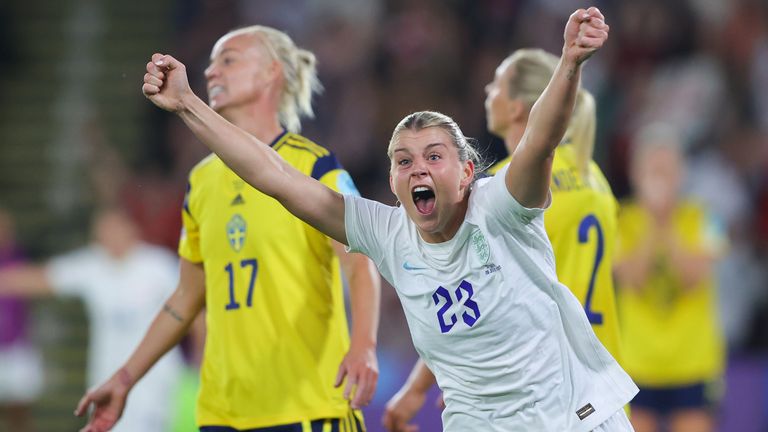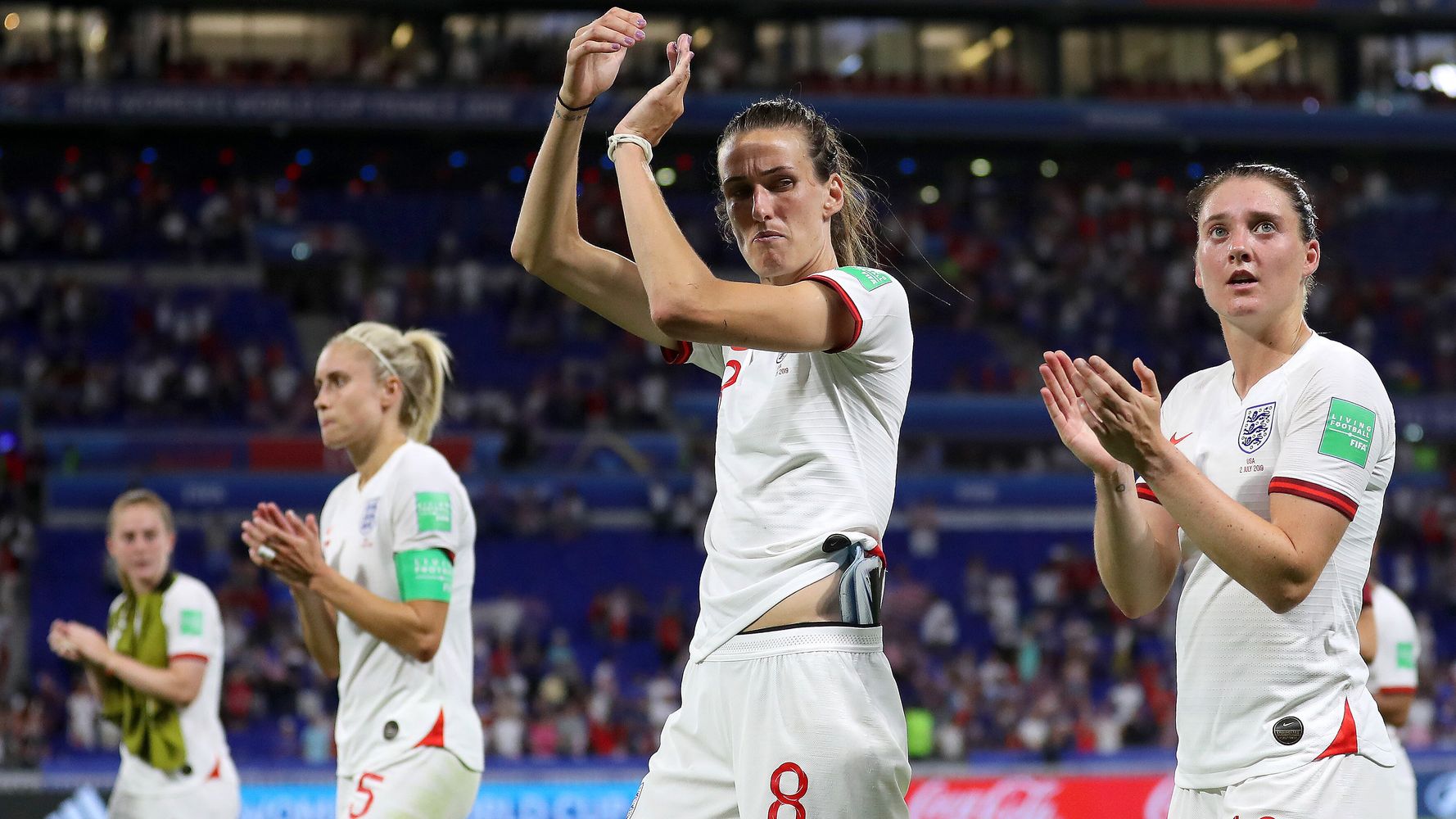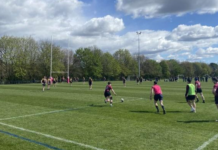Last night we saw England sail through to the final round of the women’s Euros, beating Sweden 4-0 at Sheffield United’s Bramall Lane.
In the crowd, men, women, and children alike celebrated as the Lionesses sealed their historic victory.
England’s success this summer will leave a lasting legacy, inspiring millions of young women and girls to get involved in football.
Victoria Wood, who works for the University of Sheffield and is one of the ambassadors for the Her Game Too campaign, stated:
“To see the whole country get behind the Lionesses will make so many people feel like they have a place in the sport that has been predominantly male for so long.”
The tournament has helped generate more awareness of the Her Two Campaign.
Victoria also said:
“Last night we were 7th in the trending topics [on Twitter] in the UK… As a campaign that initially began to eradicate sexism in mainly men’s football, it’s amazing how much has changed over the last year and how much the Lionesses have changed that.”
Campaigners also hope that the increased attention on the sport will encourage providers, particularly schools, to make football more accessible for young girls.
Speaking to BBC Breakfast, Ian Wright said:
“When you consider there is only 63 per cent of girls who have the same access as boys to football, this is why I am hoping by 2024 what the FA and Barclays are doing is making sure that (access) can happen in every school for boys and girls and 100 per cent of girls can get the opportunity to play football.”
The media coverage and popularity of the tournament have created role models in players such as 27-year-old Beth Mead and 30-year-old Lucy Bronze for young girls to look up to.
28,624 spectators attended the match, a record for a women’s semi-final.

Within the last couple of years, there have been changes to improve the respect women’s football receives within the UK. However, there is still room for improvement.
When asked what developments are needed, Victoria Wood stated:
“More investment. The game has so far to go … only 50 years since the ban on women’s football was lifted – and the FA needs to step up. Young girls need investment to push the sport further.”
The difference in prize money between winners of the men’s and women’s tournaments exemplifies the need for more investment in women’s football.
According to the BBC, in the 2019 women’s World Cup, the winners, the USA, woman a prize fund that was over nine times less than the French men’s team won their tournament in 2018.
For the Euros, UEFA confirmed that the 16 qualified teams for the women’s competition will share £13.73m regardless of performance. Each of the 24 qualifying teams in the men’s tournament received £7.9m.
It is clear that while change is occurring in the popularity and accessibility of the women’s game, the disparities in business and economic aspects between men’s and women’s football remain.
Campaigners hope the excitement surrounding the Lionesses’ success in the Euros will help raise awareness of the inequality still evident in the sport.
You can watch the Lionesses compete in the final for the Euros on Sunday 31 July at 5 pm. The match will be streaming live from Wembley Stadium on BBC One and online on the BBC iPlayer.
Image Credit: Google, Sky Sports





